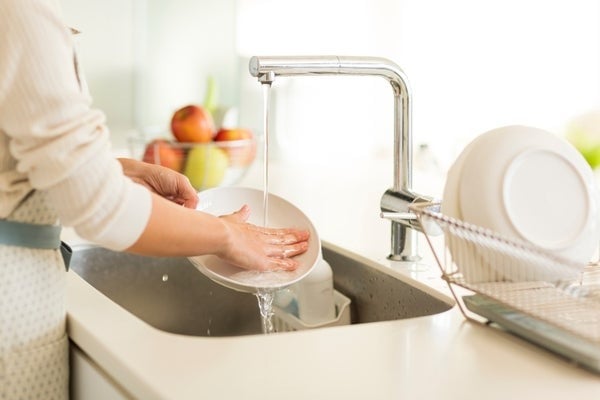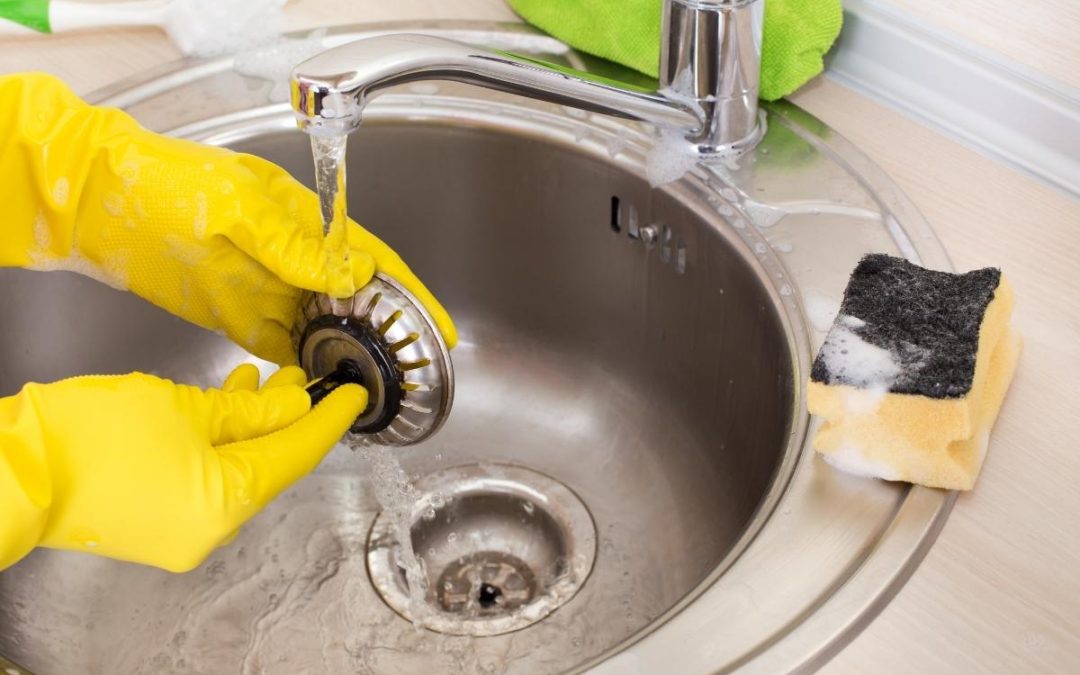Are you currently hunting for guidance about 4 Tips to Fix a Slow Draining Sink?

Introduction
We've all existed: You're cleaning your teeth or cleaning your hands, and you notice the water pooling in the sink. Instead of quickly swirling away, it lingers, turning your once-refreshing morning regimen right into a mini overload scene. A slow-draining sink isn't just irritating; it's typically an indication of bigger plumbing concerns prowling below the surface area. The bright side is that most slow-draining sinks can be repaired with a little knowledge, a couple of basic tools, and some perseverance. Prepared to tackle this job head-on? Let's roll up our sleeves and dive right in.
Recognizing the Sources Of a Slow-Draining Sink
Prior to you start poking around in your pipelines, it aids to recognize what may be triggering the downturn. Recognizing the source makes it less complicated to select the best repair.
Devices and Materials You'll Need
The right devices make all the distinction. The good news is, you will not require a completely equipped plumbing's van to finish the job.
Step-by-Step Guide to Repairing a Slow-Draining Sink
Currently, let's enter the nitty-gritty. This step-by-step process will certainly lead you via simple methods to recover your sink's drainage.
Action 1: Eliminate and Clean the Stopper
Commonly, the stopper (that small plug you lower to block water) is the very first offender. Remove it meticulously and wipe any type of hair or substance caught around its base. Wash it completely prior to putting it back in place.
Step 2: Utilize a Bettor to Displace Particles
Got that plunger prepared? Setting it over the drainpipe and give it a couple of company pumps. The concept is to develop suction that can loosen any blockage. If you see bits of debris floating up, you're on the right track.
Action 3: Attempt a Drain Snake or Wire Hanger
If the plunger does not do the trick, it's time to bring out the drainpipe snake. Gently feed it right into the drainpipe and spin as you go. You might really feel some resistance-- that's most likely the obstruction. Keep twisting and drawing until you eliminate the blockage. If you don't have a drainpipe snake, a corrected the alignment of wire wall mount can work in a pinch.
Tip 4: Apply a DIY Drain Cleaner
An all-natural cleaner made from cooking soft drink and vinegar can break down residual crud. Put half a cup of baking soda right into the drainpipe, adhered to by half a mug of vinegar. Let it fizz for around 15 minutes, then flush with hot water. This chain reaction commonly does wonders for minor blockages.
Step 5: Rebuild and Test the Sink
Placed everything back together and run the faucet. Does the water currently swirl down the tubes at a decent speed? If yes, give yourself a pat on the back. If not, do not anguish-- there are still a couple of more tricks up your sleeve.
Crucial Tools for DIY Repairs
A bettor is your best beginning factor. A small, sink-sized bettor creates suction that can displace minor obstructions. For even more relentless blockages, a drainpipe serpent (occasionally called a plumbing's auger) works marvels. A set of gloves, a flashlight, and maybe a set of protective safety glasses are also handy.
Recommended Cleaning Solutions
Light recipe soap and hot water can aid break down greasy build-up. A combination of baking soda and vinegar is a reliable natural home remedy, and enzymatic cleansers offer an even more environmentally friendly approach. Maintain chemical drain cleaners as a last resource, as they can be harsh on your pipelines.
Usual Wrongdoers Behind Slow Water Drainage
So, what's clogging things up? Generally, it's a mix of day-to-day debris-- think hair, soap scum, toothpaste deposit, and remaining food particles. In time, these tiny bits accumulate and cling to the pipe wall surfaces, progressively narrowing the passage and making it harder for water to go through. Sometimes, natural resource from hard water can also add to the crud, developing the best storm for stubborn blockages.
When is it Time to Act?
If you discover the water draining slower than normal, it's a good idea to intervene faster rather than later on. Waiting also long could bring about finish blockages, unpleasant odors, and even pipe damages. If the water takes more than a few seconds to remove after shutting off the faucet, consider it a warning and get ready to put on your DIY hat.
Safety First: Preventative Measures and Prep work
Before you launch into unclogging mode, think of security. You're dealing with potentially unclean water and debris, so slip on a pair of handwear covers. If you're making use of chemical cleaners, guarantee the area is well-ventilated and adhere to the directions on the tag.
Safety Gear and Office Setup
Put down some old towels or rags around the sink location to capture sprinkles. Eliminate any type of things that might get in your method, like soap dispensers or toothbrush owners. See to it you have excellent lights-- grab a flashlight if needed.
Different Approaches for Stubborn Clogs
Not all obstructions are produced equivalent. If your sink still rejects to coordinate, consider these different services.
Sodium Bicarbonate and Vinegar Approach
We already discussed this, however it deserves noting once more. This gentle, environmentally friendly approach is safer than chemical cleansers and frequently fairly efficient.
Enzymatic Drainpipe Cleaners
Enzyme-based cleaners make use of all-natural germs to digest raw material. They're an outstanding selection if you're seeking to stay clear of harsh chemicals. Just remember, they might take a bit longer to work their magic.
Chemical Drain Cleaning Company: Benefits And Drawbacks
Chemical cleaners can blast with challenging obstructions quick, but they're not without disadvantages. They can create warmth and fumes, damages pipelines if made use of excessively, and posture ecological threats. Utilize them sparingly, and constantly adhere to the directions thoroughly.
Safety Nets to Maintain Your Sink Flowing
Avoidance is the very best remedy. By adopting a few simple routines, you can keep your sink from slowing down to begin with.
Regular Cleaning Routines
Clean down the sink container and component location consistently. Get rid of hair or food fragments before they have a chance to wash down the drain.
Avoiding Unsafe Substances Away
Reconsider prior to discarding coffee grounds, grease, or coarse vegetable scraps down the sink. These culprits cling to pipe wall surfaces, creating obstructions gradually.
Regular Upkeep Checks
Arrange a quick regular monthly assessment. Run hot water through the sink for a couple of mins, taking notice of the flow. If it appears slow-moving, act fast before it ends up being a full-blown obstruction.
When to Call a Professional Plumbing Professional
Sometimes, no matter just how hard you try, that obstruct just won't move. That's when it's time to generate the pros.
Signs That Suggest a Much More Severe Concern
If your sink drains pipes slowly despite several efforts, or if you notice water backing up in other components (like your shower or commode), you might have an extra significant plumbing issue lurking much deeper in the system.
Balancing DIY Initiatives with Expert Assistance
While DIY can conserve you cash and offer a feeling of accomplishment, there's no pity in calling a specialist. A specialist plumbing technician can examine your whole plumbing arrangement, guaranteeing there's no underlying damages or long-lasting issue that can cost you much more in the future.
Contrasting Expenses and Long-Term Solutions
Before choosing, think about the big picture. A low-cost, quick fix might fix the issue momentarily, yet purchasing a much more permanent option can conserve you money and stress and anxiety over time.
Evaluating the Expenditures of DIY vs. Professional Solutions
Do it yourself fixes typically cost bit greater than the cost of a bettor or a container of baking soda. Specialist solutions, on the other hand, come with a price tag but might prevent repetitive problems and costly repair work later on.
Investing in Quality Fixtures and Upgrades
If your sink's layout adds to regular clogs, it could be worth updating to higher-quality fixtures or modifying the plumbing design. Consider this a financial investment in your home's capability and comfort.
Verdict
A slow-draining sink can seem like a minor inflammation, but it's usually an indication that your plumbing needs a little TLC. By recognizing the root causes, utilizing the right tools and techniques, and devoting to easy safety nets, you can keep your sink flowing freely. And when all else stops working, never wait to employ a specialist-- your home's pipes deserves the financial investment in care and maintenance.
Three Common Ways to Fix a Slow Drain
Baking Soda Method
Boil a full pot of water. Measure out cup of baking soda and pour it down the drain. Then take cup of the magical cleansing substance known as white vinegar and drop that down there too. Allow the mixture to fizz in the drain for five minutes as the vinegar and baking soda combine. Now dump in that whole pot of boiling water. This combination of cleaning substances should clear out anything that is causing your sink to drain slowly. If it doesn t...
Zip-It
If the baking soda method doesn t clear out your drain, it may be because a significant amount of hair and/or other debris has collected there and you need to remove it. Purchase a Zip-It tool at any home improvement or hardware store and insert it into your drain. It will catch any collected hair or debris that s blocking the flow of water. Pull it out. If it s got a big clump of hair, etc. on the end, you ve probably got your culprit.
Drain Cleaner
If these methods don t work, there is the standard drain cleaner that you can also buy in a hardware store or even your local grocery store. It s better if you can use a household solution, but these drain cleaners often work in a pinch. They re very simple to use. You generally just dump them in your drain and wait. If even this method is not effective, it may be time to call the plumber.
https://www.mrrooter.com/oneida/about-us/blog/2017/july/three-common-ways-to-fix-a-slow-drain/

I was made aware of that editorial about Three Common Ways to Fix a Slow Drain from an acquaintance on our other web page. Enjoyed our blog entry? Please quickly share it. Let another person find it. Thank you for being here. Kindly come by our site back soon.
Call Today